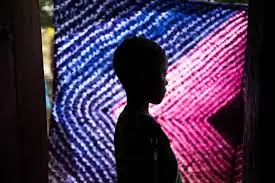Nearly half of sexual abuse first happens at age 15 or younger: Lancet study

A new study in The Lancet shows that nearly half of sexual abuse victims experience it for the first time at age 15 or younger. This alarming finding highlights the need for stronger protections, early intervention, and support systems for children and adolescents.
Key Findings from the Study
The study analyzed data from various countries and found that sexual abuse often begins in adolescence. Nearly 50% of those who reported abuse experienced it before or at age 15. The majority of abuse cases involved someone close to the victim, like family members, peers, or trusted adults. This reveals that abuse often happens in environments where children should feel safe.
The study also found that sexual abuse is underreported. Victims, particularly children and teens, often fear not being believed. Shame and social stigma also prevent many from speaking out.
Understanding the Impact
Child sexual abuse has long-lasting consequences. Survivors face emotional, psychological, and physical challenges throughout their lives. Common effects include post-traumatic stress disorder (PTSD), depression, anxiety, and substance abuse. These survivors may also struggle to form healthy relationships and succeed in education and work.
The study stresses the importance of early intervention. Counseling, legal aid, and other resources can help survivors heal and rebuild their lives. Addressing trauma early leads to better outcomes.
The Role of Education and Awareness
Preventing sexual abuse requires education. The study calls for comprehensive sex education in schools. Children need to understand boundaries, consent, and how to report abuse. Society must foster an open environment where children feel safe to speak up.
A Call for Stronger Protective Measures
The study highlights the need for stronger laws and policies. These should protect children, especially in vulnerable situations. Laws must hold perpetrators accountable. Victims should have clear paths to justice without fear of retaliation.
Experts urge more public health resources to train teachers, parents, and caregivers to recognize abuse. Communities must work together to create a safety net for at-risk children.
Moving Forward
The Lancet study brings attention to the global issue of sexual abuse. Early intervention, education, and stronger protections are essential to reducing abuse and its long-term effects. By committing to these measures, we can protect children and ensure they grow up in safe environments.






